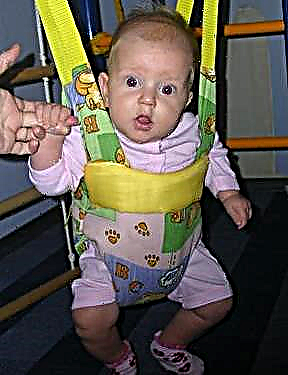Mom's milk for a baby is the best food, no one can argue with that. However, for a number of reasons, breastfeeding is not always available. Artificial mixtures come to the rescue: adapted, dairy and dairy-free, antireflux and gluten-free, iron-fortified and hypoallergenic, powder and liquid. Correctly selected they provide the baby with all the necessary substances. In addition, this is a great opportunity to take part in caring for the child and other family members, especially the father. Artificial feeding has many nuances: how to choose, how to feed a newborn baby with a formula, how many feedings should be.

Formula feeding is an alternative if breastfeeding is not possible
How to feed properly with formula
Since a newborn child has a very small stomach volume, the size of his first portions is very small: at first, 30 to 60 ml of food is enough for him to saturate, by the end of the second month of life this volume reaches 900 ml per day.
For correct and full-fledged artificial feeding of a baby, the main thing is to choose the mixture correctly: it must be chosen strictly according to the age of the baby, monitor the content of bifidobacteria, taurine and other useful substances.
For the correct preparation of the mixture in at home basic rules should be followed:
- adhere to the dosage recommended by pediatricians, otherwise the child can be overfed;
- be sure to monitor the baby's condition after feeding in order to understand in time that this type of breast milk substitute does not suit him or does not like him;
Important! Prepared, but not eaten food should not be left for the next feeding, the leftovers are mercilessly poured out.
- for feeding, special bottles with measuring scales and nipples of different diameters are used, which must be thoroughly washed with hot water before each meal and sterilized more often;

Bottles are used for formula feeding
- when preparing a portion, use dry, clean dishes (measuring spoons, knives for opening cans, etc.) and strictly follow the manufacturer's instructions;
- dry mixtures are diluted with clean boiled water (you can use bottled water - special for children), but in no case take distilled water - it is "dead" and devoid of important minerals.

Baby food is prepared in clean dry dishes
How often to feed
The frequency of feeding depends on the age of the baby, as well as his condition and mood. However, on average, newly born babies eat every three to four hours a day, a short break for the night is required. From 7-8 meals per year, they gradually switch to 5-4 single feedings.
Note! You cannot force feed a baby.
If a newborn's sleep is prolonged and he may miss another feed, many doctors recommend gently waking him up and offering a bottle of formula. Perhaps the baby will eat without waking up.
Usually, by the end of the first month of life, the feeding regimen for bottle-fed babies will stabilize, the intervals between feedings are four hours.
Feeding a newborn with formula according to WHO
WHO has developed recommendations for mothers on how to feed their baby with formula, containing information about the amount of feedings required for infants and the amount of formula fed, depending on age.
The volume of the formula on artificial feeding by the age of the child
| Baby's age, months | Volume per feeding, ml | The interval between feedings |
|---|---|---|
| Newborn up to one month old | 60 to 90 | In three to four hours |
| One | Up to 120 | In four hours |
| Two | Up to 120 | Six to seven feedings per day |
| Four | 120 to 180 | Six feedings a day |
| Half a year | 180 to 240 | Five feedings a day |
| Year | Up to 240 | Two to three meals, in conjunction with baby food |

To provide the child with the necessary substances, it is necessary to determine the optimal volume of the mixture.
If there is no such table at hand, or the parents do not trust it, to calculate how much to give a newborn mixture per day, you can use the following formulas:
- Filatova-Zaitseva or Tura (applicable for children from the first week to 10 days of age): 2 percent of body weight at birth is multiplied by the number of days of life;
- "Bulky" formulas (after 10 days of life) - the volume of the mixture is determined by the current weight of the baby:
- up to 2 months - one fifth of the mass;
- from 2 to 4 months - one sixth of the mass;
- from 4 to 6 - one-seventh of the mass;
- over six months - one-eighth of the mass.
Additional Information. At certain periods of life, the child's needs may deviate from the recommended norm in one direction or another, this must also be taken into account by mothers who practice artificial or mixed feeding. Also, the child may not cope with the prescribed volume of the mixture in one feeding, then you should feed him in smaller portions, but more often.
Approximate feeding regimen at 1-3 months
If a mother is thinking about how to properly feed a newborn with a formula, first of all, she must adhere to the diet of her child. In the first 30 days of life, the infant mainly sleeps and eats, therefore, feedings alternate with 2.5-3 hour breaks throughout the day, you also need to accustom the baby to a night break (after a month, a 6-hour rest is recommended for a small ventricle).

It is recommended to take a short break from feedings at night.
Starting at 2 months of age, your toddler has 18 hours for 6 meals, approximately every 3 hours. A schedule that is clear up to the minute of following is not required, you cannot allow the baby to cry for too long from hunger in anticipation of the next feeding, but it is worth dragging out as much time as possible until this moment. Gradually the little person adapts to the regime.
When building a formula for feeding with a formula, you should not focus on the frequency of breastfed babies latching on to the breast - infant formula and human milk have different rates of absorption in the infant's alimentary tract. The artificial product is more satisfying, so breastfeeding by babies is much more frequent than bottle feeding.
Also, drinking the diluted mixture from the hole in the nipple much faster than sucking milk from the breast: the bottle will run out in 10 minutes, and you can "hang" on the breast for hours.
Additional Information. When artificially feeding babies, it is advisable to supplement their diet with clean water, its volume is not counted as nutrition.
Is it possible to feed with formula on demand
Almost all pediatricians and mothers who practice breastfeeding believe that you need to feed your baby at the first squeak. Some parents who, for one reason or another, artificially feed their children in order to extinguish some feelings of guilt, also wonder whether it is possible to feed a formula at the request of a newborn baby.
Pediatricians answer unequivocally - no. The difference between breast milk and even the best and most expensive super adapted formula is that the first is absorbed faster, it is formed exactly as much as the baby sucked in the past feeding. This does not happen with the mixture - it is prepared by the mother or another parent in strictly measured quantities.
In addition, offering your baby food at a certain time will quickly help him adapt to a given rhythm of life, the food will organically fit into the daily routine, and parents (especially mom) will be able to plan other things. This can be called one of the positive aspects of artificial feeding of newborns.
Why you can't feed on demand formula
The child's body digests artificial milk food much longer, therefore, food breaks are simply necessary so that the half-digested food in the baby's stomach does not mix with the newly supplied food.
If a baby smacks his lips after feeding from a bottle, this does not mean unequivocally that he is not full. All babies have a very developed sucking reflex, so you can offer the baby a dummy, but not an additional portion of the nutritional formula. Perhaps the child just wants to drink (water must be in the diet of artificial people).
Consequences of uncontrolled consumption of the mixture
If mothers decide to listen to the supposedly "natural urges of the baby's body" and feed him from a bottle, as they do with breast milk, at the first peep, there can be quite serious consequences for the health of such newborns. The risk of overfeeding and over-saturating a child's fragile body with nutrients and protein increases. In the future, this threatens the appearance of obesity of various degrees, indigestion, impaired activity of the digestive organs, dysbiosis, problems with falling asleep.

Obesity can develop from uncontrolled eating of formula in a newborn
The child begins to show signs of allergy, after which it is necessary to re-mix the mixture, and the mother's feelings of guilt are aggravated that she cannot breastfeed her child.
Milk formulas are an excellent substitute for breast milk, however, a number of conditions are imposed on the breadwinners of how to properly feed a newborn with a formula so that the child receives all the substances necessary for growth and development with food. What volume of the mixture and how often to give to the baby is determined by the WHO table, various formulas and recommendations of pediatricians, depending on the weight and age of the child.



